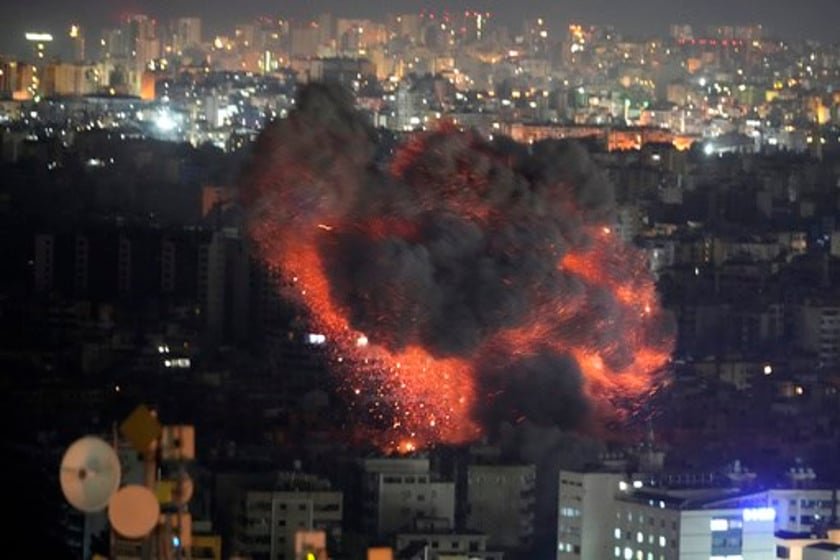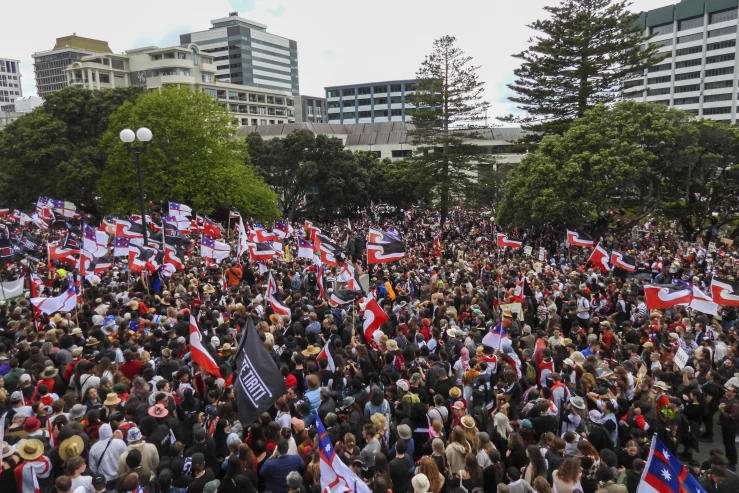Israel Strikes Iran: Unleashes Pre-Dawn Airstrikes on Military Targets in Retaliation
Israel strikes Iran against Iranian territory involve carrying out a wave of dawn raids against the country’s military sites during morning hours on early Saturday, an attack that has been directly focused on targeting a long range ballistic missiles barrage that sent this month into Israel from the nation in response to such attacks it made as part of an intensifying confrontation, which is raising worries from both sides about possible escalations beyond these latest moves.
Israel strikes Iran operation is rather important since it is the first time Israel’s military has been so open regarding its attack on Iran and a new stage in the ongoing regional conflict. The airstrikes prove Israel’s commitment to response force against any threat after direct missile attacks on its territory. Precision and timing of the strikes speak about the military capability of Israel and preparedness for dealing with Iranian aggression.
Israel strikes Iran,as explained by statements of the Israeli military, the airstrikes targeted the specific Iranian facilities that had been producing the ballistic missiles that had been fired toward Israel. The operation was intended at the neutralization of surface-to-air missile sites, so that Iran’s use of such missiles against Israel would be curtailed in the future. It would weaken the missile capabilities of Iran and force it to refrain from further hostilities.
This has all escalated dramatically, representing a fragile nature of stability within the region, both nations being openly engaged militarily against each other. Missiles facility strikes will heavily weaken Iran’s military capacity while also sending an extremely important message regarding Israel’s decision to take direct actions on the threats.
READ MORE: Queensland election as it happened – a night of drama, twists and turns

Israel Hits Iran: Precise Airstrikes Miss Oil and Nuclear Sites As Tensions Escalate
Israel strikes Iran was a rather strategic strike from Israel because it deliberately avoided targeting oil fields or nuclear plants, but targeted the military asset. Despite the intensity with which the operation was handled, no apparent indications were found that critical infrastructure points were hit. Iran watered down the effects of the aerial strikes, saying that these resulted only in “limited damage.” State-run media in Iran was able to downplay the gravity of the strike thus depicting it as a contained episode.
The restraint shown by both sides indicates a mutual need, at least for now, not to engage in further and more dangerous escalation. The fact that the Israeli strikes are targeted as well as an Iranian response having been moderated tells something, though for sure, it is still fragile and open to further clashes.
Israel strikes Iran,the threat of war is now a near certainty, and with the Middle East already in flames and violence flaring, and Israel at war with several groups that Iran backs, including Hamas of Gaza and Hezbollah of Lebanon, the battles in those countries have generated tensions that cause people to believe that if Israel continues to act against Iran, a bigger showdown is bound to be triggered. Today, it is at a very sensitive crossroads. And any provocation further would only tip the balance to a greater, more destructive conflict.
Israel strikes Iran have caused quite an uproar in Iran. The country’s state-run IRNA news agency claims that four were killed in the attack-all military air defense. Military bases in the provinces of Ilam, Khuzestan, and Tehran are being attacked, thus crippling military infrastructure in Iran. However, there was one important piece of information that seemed to be missing in the aftermath of this event: the powerful paramilitary force known as the Revolutionary Guard said nothing. Perhaps it is the most important pillar of Iran’s theocratic regime, and their silence is adding an air of uncertainty to the situation.
In the United States, President Joe Biden was quick to comment on the attacks. He mentioned that Israel had actually informed him ahead of conducting the operation. As far as he could see, all the strikes were on military targets and did not involve critical civilian infrastructure. With this statement, Biden indicated that the operation was majorly focused on the objective, not wanting to escalate further.
The administration, according to Biden, also received from Israel, mid-October, a commitment that no sensitive sites would be touched by the airstrikes, and this included not touching oil installations and nuclear facilities. It seems such commitments are being fulfilled, as Iran confirmed that nothing touched the oil or nuclear infrastructure there.
Reflecting on the current state of tensions, President Biden said he hoped the hostilities would not escalate any further. “I hope this is the end,” he told reporters, referencing the global concern about a possible wider conflict. His words underscored the delicate balance that the region faces, as all eyes remain on the next moves from both Iran and Israel.

Israel’s first open attack on Iran
Israel Strikes Iran: Escalates War With Unprecedented Military Bombardment
Israel strikes Iran has marked the most intense military bombardment that the Islamic Republic has ever faced from an adversary since the brutal Iran-Iraq war of the 1980s. The early morning airstrikes sent shockwaves in Tehran until dawn, signifying a new phase of war between the two countries and the most intense attack they have ever received from one another.
Israel strikes Iran is not the first attack Israel has launched against Iranian assets. The more limited airstrike on April occurred and most analysts believe that Israel had its role in the operation where a major air base near Iran was exposed to a radar system. Compromising a Russian-made air defense battery, Israel demonstrated its ability to carry out precision attacks on sensitive military infrastructure in deep regions of Iranian territory.
The latest provocation followed a wave of missiles and drones launched toward Israel, which caused minor damage only. This came after two high-ranking generals in Iran were killed during what looked like an Israeli airstrike against an Iranian diplomatic post in Syria. It further worsened the already very volatile relations between the two nations.
Iran upped the situation ante by launching at least 180 missiles on Israel’s day. On October 1, these missiles flew from Syria as a means of revenge to the terrible pummeling which Israel handed over Hezbollah. The one blow by either side which leads into wider conflict -both show that they both want to keep their arsenals open.
Israel strikes Iran recently, resulting in only slight damage and minimal injuries on the ground. Following the strikes, Prime Minister Benjamin Netanyahu declared that the Iranians “made a big mistake” by launching attacks inside Israel. This statement reflects a strategic move by the Israeli ruling party to emphasize their resolve in defending the nation against foreign interference, showcasing that this is a serious matter.
Rear Admiral Daniel Hagari, an Israeli military spokesperson, noted that Iran has attacked Israel twice, including strikes that endangered civilian lives. He emphasized that Iran “has paid the price for it,” underscoring the seriousness with which Israel views these provocations. Hagari also warned, “If the regime in Iran were to make the mistake of starting a new round of escalation, we will have to respond,” indicating Israel’s readiness to escalate if necessary.
Images from the Israeli military depicted personnel boarding American-made F-15 and F-16 warplanes, showcasing Israel’s technological advancements on the battlefield. These sophisticated jets underline the strength of Israel’s military capabilities in the ongoing conflict.
The Iranian military reported that Israeli forces launched lightweight missiles from about 100 kilometers away, primarily targeting air defense radar stations, some of which were already undergoing repairs. Interestingly, the Revolutionary Guard, which manages Iran’s extensive arsenal of ballistic missiles, chose to remain silent after the strikes. Their quiet response has raised doubts about whether any significant targets were hit.
Experts believe that Israel intentionally targeted less prominent areas to avoid triggering a stronger response from Iran. By avoiding highly symbolic targets, Israel aims to manage the conflict carefully. Yoel Guzansky, a researcher at the Institute for National Security Studies in Tel Aviv and a former member of the Israeli National Security Council, stated that this approach allows both parties to maintain an upper hand for future escalation if needed.
By focusing on air defense systems, Israel effectively weakens Iran’s ability to respond to future attacks while minimizing the risk of provoking a larger conflict. Guzansky concluded that in a limited attack scenario, it is unlikely Iran would exceed the principle of proportionality in its retaliation.

Israel, strikes on Iran, emphasizing precision and military acumen, unambiguously replacing the rival. “There is a sense that Israel’s strikes were targeted against military sites and missile facilities rather than nuclear and energy infrastructure, a move signalling that there isn’t more fear of a further escalation for now,” says Sanam Vakil, director of the Middle East and North Africa program at the London-based think tank Chatham House.
Israel Strikes Iran and simultaneously lets on that diplomatic efforts, and back-channel negotiations made to moderate the attack succeeded. Israel does not strike critical infrastructure so as not to let things get out of hand as they want to portray restraint. This is Israel showing restraint in measured doses while sending a statement about military capability and containment and not conflict.
Israel strikes Iran, but life in Tehran seemed surprisingly normal afterward. Children were going to school, and shops were opening up for business, with streets full of people going about their daily routines. Yet, there was the usual scene: lines were already forming at the gas stations, a reaction seen every time military tensions erupt and people stock up on fuel, fearing shortages.
Israel strikes Iran as fear grips some Iranians’ minds. Life in the city has gone on its way, though there’s something in the air. Many seemed to be getting on with business as usual but were hesitant to open up much to an Associated Press reporter. Here is a reflection of that calm mixed with unease surrounding the lives of the people in Tehran, where military action cast a big shadow in the back of their minds and yet try to carry on daily life.
Israel strikes on Iran have brought a range of mixed reactions both within the country and around the globe. Yair Lapid, Israeli opposition leader, condemned the government for not striking “strategic and economic targets.” He said this through X: “we could and should have exacted a much heavier price from Iran.” This comment reflects one of the great divisions within the Israeli politics over whether or not the military operation has been successful.
The strikes have been accompanied by a warning from the United States as well. The administration said no further move must be made by Tehran for retaliation. The British and German officials endorsed this stand, calling on Iran not to retaliate against the strikes. UN Secretary General’s spokesman condemned the act and said all acts of escalation are condemnable and should stop
Condemnations have also come from several countries in the region regarding Israel strikes Iran. Saudi Arabia was among those denouncing the action, describing it as a violation of Iran’s “sovereignty and a violation of international laws and norms.” Such rhetoric reflects the heightened tensions and the differing perspectives on the legitimacy of Israel’s military actions.
The attacks from Israel have also resulted in very harsh responses from Hezbollah and Hamas, which condemned the attack. Their stance shows that they are united, which further indicates the wide regional impacts of the attack as more factions rally themselves behind Iran to fight back against Israel’s military moves. The multifaceted nature of the response depicts complexities and the challenges in how diplomatic relationships are handled within this increasingly volatile Middle Eastern environment.
Israel strikes Iran as regional tensions heighten. In Lebanon, Hezbollah uses pagers and walkie-talkies in a chain of blasts that killed dozens of people and injured thousands last September when the attacks were accused to be from Israel. Since then, an Israeli airstrike near Beirut killed long-time leader of Hezbollah Hassan Nasrallah, which led to heightening the tensions in this conflict.
Israel strikes in Iran are followed by ground invasion into southern Lebanon, driving over a million Lebanese citizen out of their homes, and the death toll has spurted sharply as areas in and around Beirut start to come under Israeli bombardment. Hezbollah has reacted by warning 25 towns in northern Israel to evacuate labeling them “legitimate military targets” as Israel was continuing its attacks on militant group from these regions.
This series of Israel strikes on Iran represents the continuation of a bitter rivalry that has its roots back in the 1979 Islamic Revolution. Iran has been declared by Israel as its worst threat, partly because the Iranian leadership continues to call for Israel’s destruction, has supported anti-Israel militant groups, and its nuclear program. The struggle between Israel and Iran over the past decades has expressed itself through a shadow war, wherein there have been suspected Israeli assassination campaigns against top Iranian nuclear scientists, hacking into Iranian nuclear installations, and sabotage.
Israel strikes on Iran have also coincided with accusations against Iran for attacks on shipping in the Middle East. The shadow war has dramatically escalated following the attacks by Hamas and other militants on Israel on October 7, 2023, killing nearly 1,200 people, mostly civilians, and taking around 250 hostages into Gaza. Israel retaliated with a very devastating air and ground attack against Hamas, leaving about 100 hostages, a third of whom possibly be dead.
While officials at health centers report more than 42,000 Palestinian killed in Gaza, the statistics do not take into account the difference between a civilian and a fighter, however say that of those people over half, “women and children. Those not killed by the bombs die of starvation. That’s life,” said one northern Gaza displaced woman.
For more visit : Global Politics at Global hub 360





